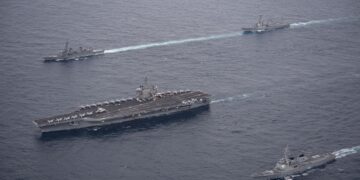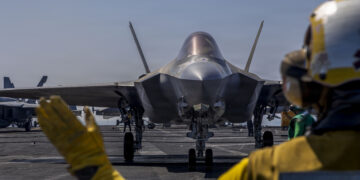Russia is reportedly interested in assisting U.S. efforts to negotiate a new and broader nuclear deal with Iran.
The potential for Washington-Moscow cooperation on Iran’s nuclear program comes as the Middle East continues to experience its most tumultuous days in recent memory, facing a litany of risks that could ignite into broader conflict at any moment. While some view Iran’s so-called Axis of Resistance as on the back foot, justifying an aggressive posture to “reshape the Middle East,” the reality is that any added aggression risks disaster in a region where Washington should be hyper-focused on shrinking its footprint.
The reporting on potential Russian mediation comes one month after President Donald Trump signed a National Security Presidential Memorandum (NSPM-2), declaring a return of “maximum pressure” against Iran. NSPM-2 makes clear its reasoning for maximum pressure: “Iran’s behavior threatens the national interest of the United States. It is therefore in the national interest to impose maximum pressure on the Iranian regime to end its nuclear threat, curtail its ballistic missile program, and stop its support for terrorist groups.”
Trump has left the option of military strikes on Iranian nuclear and military sites on the table should non-military efforts fail to curtail Tehran.
This rationalization of interests could not be further from the truth when considering the use of military force versus diplomatic mechanisms to rein in Iran’s nuclear program. The United States has very narrowly defined interests in the Middle East, regardless of what hawkish pundits would have the American public believe. Indeed, the opposite of NSPM-2 is true of U.S. regional policy priorities: avoiding a war with Iran is a core U.S. interest.
More on Middle East

Featuring Daniel DePetris
February 25, 2026
Featuring Daniel Davis
February 23, 2026

Featuring Rosemary Kelanic
February 23, 2026
Events on Iran






